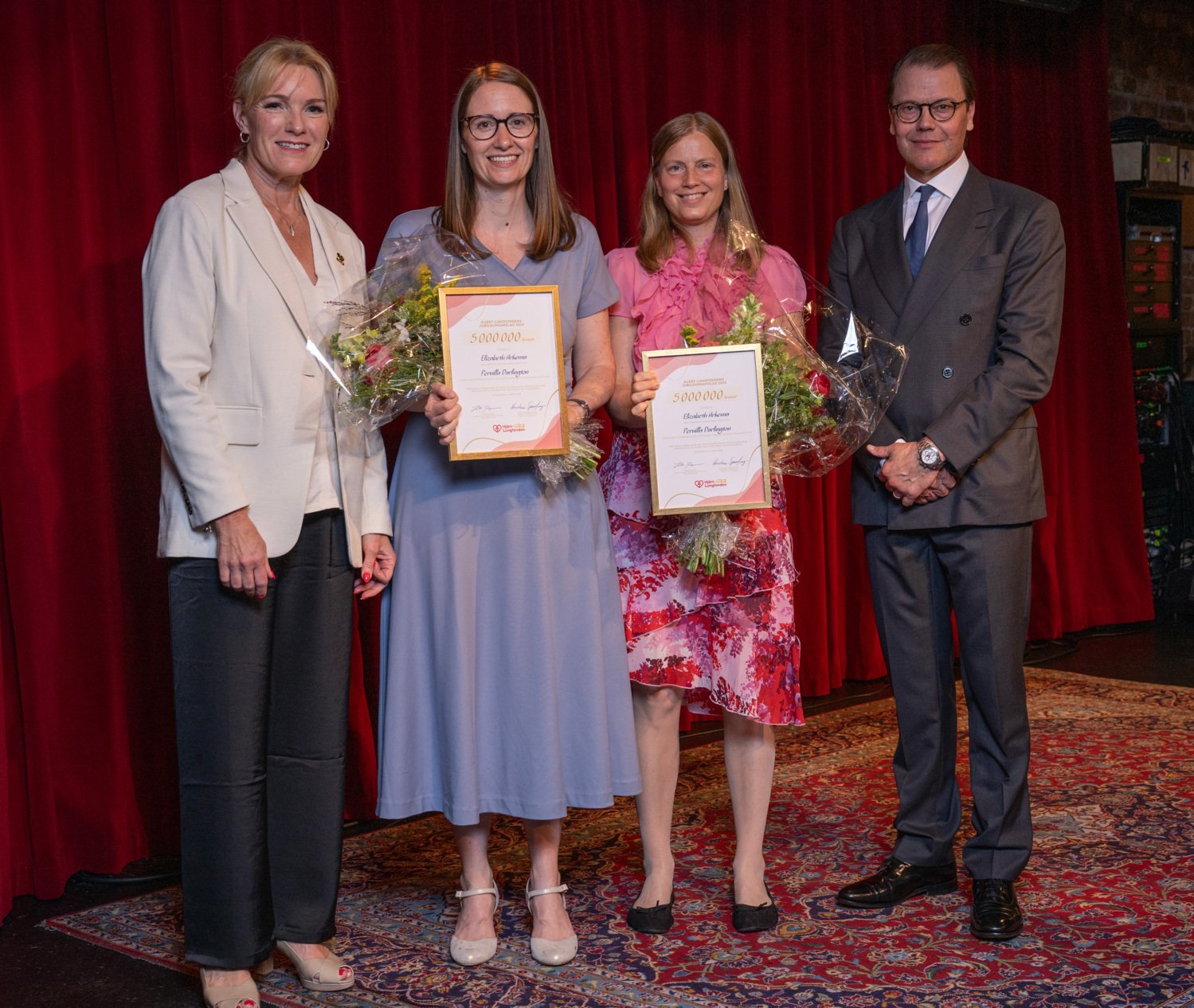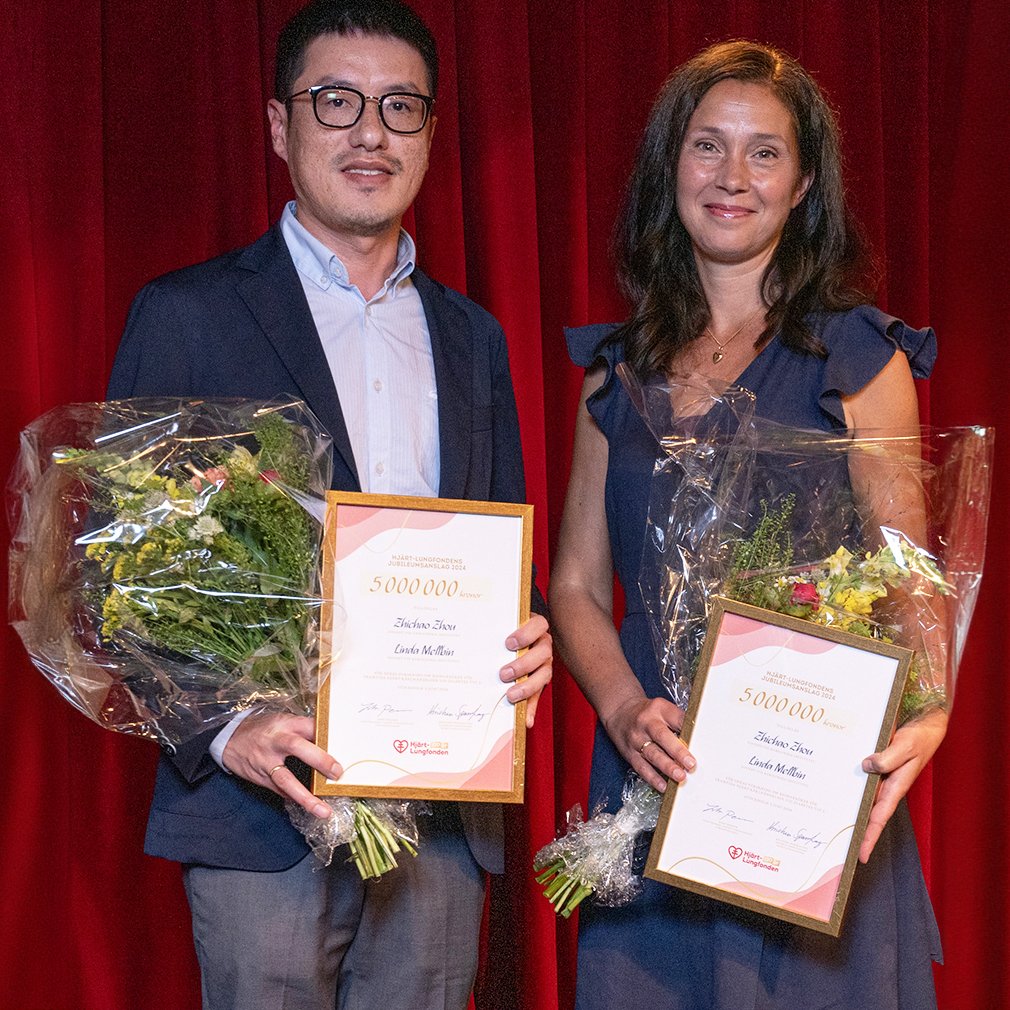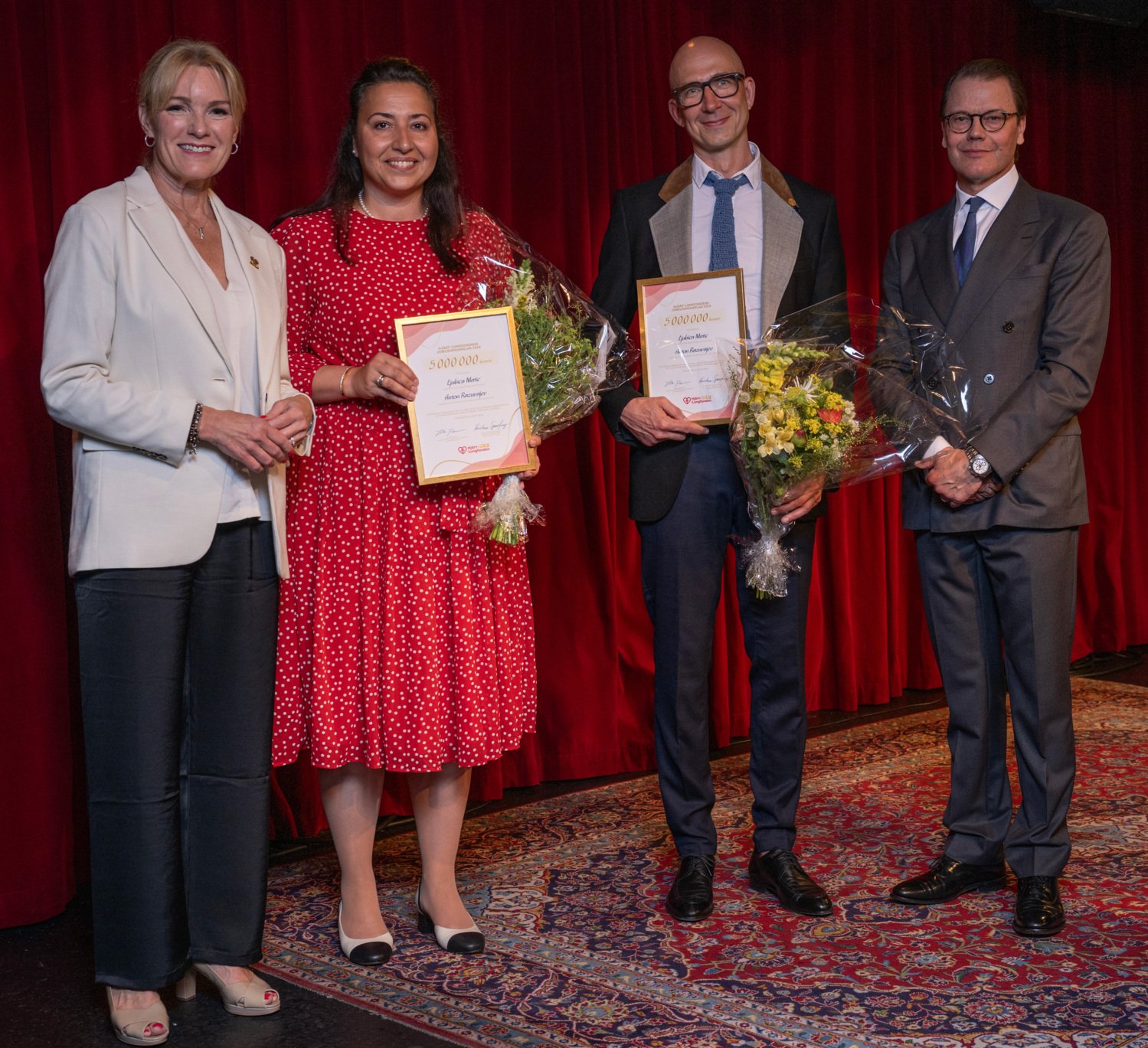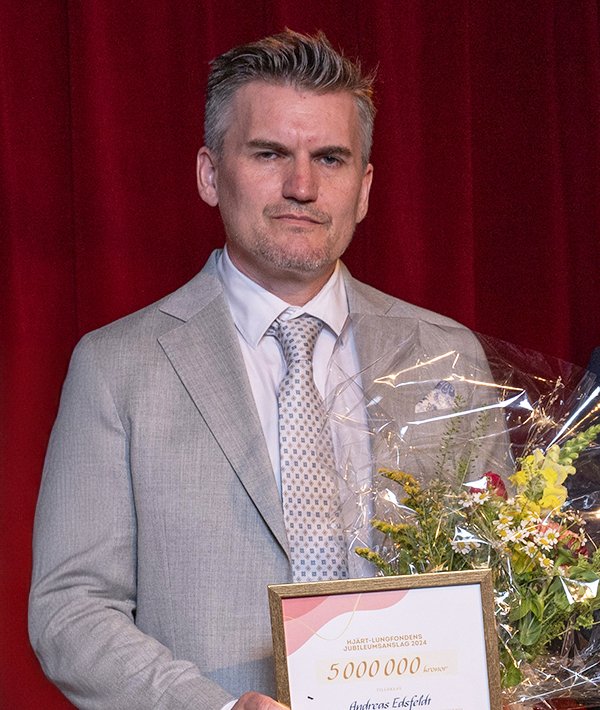Three research teams at KI awarded Heart-Lung Foundation’s new Jubilee Grant

The Swedish Heart-Lung Foundation has been supporting research into diseases of the heart and lungs in various ways since 1904, in part through generous research grants. This year, the foundation is celebrating its 120th anniversary, one of the high points of which is the creation of a new large research grant. Three of the six research teams to be awarded the foundation’s Jubilee Grant work at Karolinska Institutet.
The Heart-Lung Foundation’s newly created Jubilee Grant is worth SEK five million, distributed over a three-year period. The grant is earmarked for collaboration projects involving a clinical and a translational researcher.
The applications have been judged by an international panel.
A difficult career phase
The Jubilee Grant is open to researchers who graduated with a PhD seven to fifteen years ago, a phase of a researcher’s career that the Heart-Lung Foundation’s research council has identified as being particularly difficult in terms of obtaining grants.
One effect of this is that a significant proportion of researchers in their 40s choose to opt out of research. The new grant is therefore targeted at this group.
Three research teams at KI have been awarded the Heart-Lung Foundation’s Jubilee Grant.
The recipients at KI

Team: Zhichao Zhou, docent at the Department of Medicine (Solna) and Linda Mellbin, researcher at the same department.
Project: Non-coding RNAs in erythrocytes as mediators and biomarkers of cardiovascular injury in diabetes
Project description: Patients with type 2 diabetes have a higher risk of developing atherosclerosis, leading to myocardial infarction and stroke. One causal factor is dysfunction of the endothelial cells that form the innermost cellular layer of all blood vessels.
Red blood cells contain non-coding (nc) RNA, which can control endothelial cell function. The researchers are studying the injurious effect of diabetes on vascular function and exploring ncRNA in the blood cells as possible biomarkers for future cardiovascular events.
Team: Elizabeth Arkema, docent at the Department of Medicine (Solna) and Pernilla Darlington, researcher at the Department of Clinical Research and Education, Stockholm South General (Söder) Hospital.
Project: Novel opportunities for personalised prognosis assessment in sarcoidosis
Project description: Sarcoidosis is an inflammatory disease, the clinical profile of which varies from asymptomatic to severe symptoms and disability. The team aims to study factors of significance to the development of chronic sarcoidosis, with a focus on pulmonary fibrosis, using data from patient registries.
It is hoped that the results will shed light on the disease trajectory and the effects of treatment, and why some patients develop the chronic form of the disease that leads to pulmonary dysfunction. Ultimately, the project could give rise to more personalised care.

Team: Ljubica Perisic Matic, docent at the Department of Molecular Medicine and Surgery and Anton Razuvaev, researcher at the same department.
Project: Time to personalise the treatment of patients with peripheral arterial disease
Project description: Over 25 per cent of people aged 65 and above have peripheral arterial disease, which in many cases leads to amputation and threatens survival. There is currently a lack of adequate drug treatments and biomarkers to mitigate the risks of the worst consequences of the disease, which is caused by atherosclerotic blood clotting.
The team intends to research a biobank with modern methods to, ultimately, develop tailored therapeutic options able to prevent and reduce the risk of recurring post-surgical stenosis.

Another KI researcher, docent Stephen Malin at the Department of Medicine (Solna), has been awarded the Heart-Lung Foundation’s Jubilee Grant for a collaborative project with docent Andreas Edsfeldt at Lund University.
Project: Prevention of cardiovascular disease via specific targets in the development of atherosclerotic plaque
Project description: To reduce cardiovascular disease effectively, the development of atherosclerosis must be checked at an early stage. Currently, the later phases of atherosclerotic disease are better known, and treatments primarily aim to prevent a myocardial infarction relapse.
The team plans to find processes that control the formation of atherosclerotic plaque in order to identify people with early-phase atherosclerosis and new treatments to suppress atherosclerosis in different phases of the pathological process.
